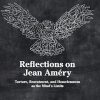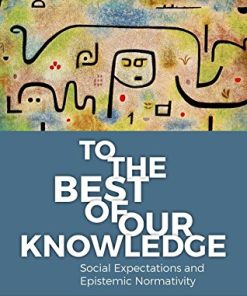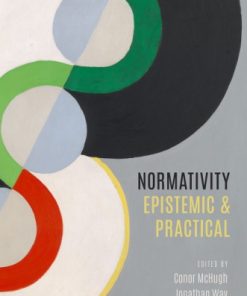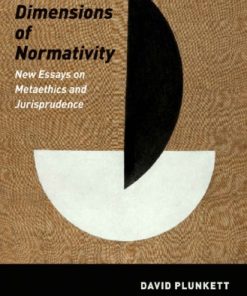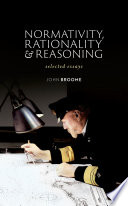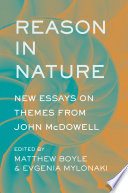Belief, Agency, and Knowledge: Essays on Epistemic Normativity by Matthew Chrisman
$50.00 Original price was: $50.00.$25.00Current price is: $25.00.
Belief, Agency, and Knowledge: Essays on Epistemic Normativity – Ebook Instant Download/Delivery ISBN(s): 9780192898852,019289885X

Product details:
- ISBN-10 : 0192654217
- ISBN-13 : 9780192654212
- Author(s): Matthew Chrisman
Epistemology is not just about the nature of knowledge or the analysis of concepts such as ‘knows’ and ‘justified’. It is also about what we ought to believe and how we ought to investigate and reason about what is the case. This is a study focused on these normative aspects of epistemology. More specifically, it is concerned with the nature of epistemic norms and their relation both to the value of knowledge and to the structure of cognitive agency. The first part develops a theory of doxastic agency according to which believers exercise agency in the ongoing activity of maintaining systems of belief. The second part defends an account of the grip epistemic norms have on us and the nature of our epistemic values. These are explained in terms of the way that a state, such as a person’s belief, can be subject to robust social norms and be valued for its stability not only individually, but, crucially, within epistemic communities. The third part proposes some foundations for a meta-epistemological theory of epistemic discourse that takes seriously the idea that knowledge attributions are partly normative, and hence should be partly classified on the ‘ought’ side of the division between claims about what reality is like, and claims about what people ought to do, think, and feel.
Table contents:
1. Introduction
1.1 Epistemology as a Normative Discipline
1.2 The Axiological and Deontological Dimensions of Epistemic Normativity
1.3 Overview and Preview
1.4 Inspiration
Part I. Doxastic Agency
2. Beliefs Are States Not Performances
2.1 Introduction
2.2 A Brief Introduction to Verbal Aspect
2.3 Belief Attributions Aren’t Performance Descriptions
2.4 Two Responses to the Objection
2.5 Conclusion
3. Belief Formation Doesn’t Exhaust Doxastic Agency
3.1 Introduction
3.2 Inquiry and Deliberation in the Age of Involuntarism
3.3 Reliabilist Virtue Epistemology Renewed
3.4 Conclusion
4. The Activity of Maintaining Beliefs
4.1 Introduction
4.2 Belief as Active Self-Determination
4.3 Challenges for Beliefs as Active States
4.4 What Is Belief Anyway?
4.5 Doxastic Agency in the Maintenance of Systems of Belief
4.6 Conclusion
Part II. Epistemic Norms
5. The Aim of Belief and the Goal of Truth
5.1 Introduction
5.2 The Radical Argument Outlined
5.3 The Radical Argument Explained and Defended
5.4 Constitutive Aims and Evaluative Norms
5.5 Social Epistemic Goals
5.6 Conclusion
6. Doxastic Involuntarism and ‘Ought to Believe’
6.1 Introduction
6.2 Rejecting “Ought Implies Can”
6.3 Sellars on State Norms
6.4 Ought to Believe as a State Norm
6.5 Conclusion
7. Social Foundations for Epistemic Normativity
7.1 Introduction
7.2 Epistemic Norms and Individual Interests
7.3 Hobbesian Epistemic Normativity
7.4 Rousseauian Epistemic Normativity
7.5 Responses to Two Objections to the Rousseauian Account
7.6 Two Clarifications about the Scope of Social Foundations for Epistemic Normativity
7.7 Conclusion: Speculation on Doxastic Freedom and Responsibility
Part III. Epistemic Discourse
8. From Epistemic Contextualism to Epistemic Expressivism
8.1 Introduction
8.2 Two Problems for Epistemic Contextualism
8.3 Ethical Speaker-Relativism and the Two Problems
8.4 Ethical Expressivism and the Two Problems
8.5 Epistemic Expressivism Solves the Two Problems
8.6 Conclusion
9. From Epistemic Expressivism to Epistemic Inferentialism
9.1 Introduction
9.2 What Is Epistemic Inferentialism?
9.3 Epistemic Inferentialism Is Better than Epistemic Expressivism, Part 1
9.4 Epistemic Inferentialism Is Better than Epistemic Expressivism, Part 2
9.5 Epistemic Inferentialism Fits Well with Social Accounts of Epistemic Normativity
9.6 Conclusion
People also search:
epistemic error theory
normative epistemology
epistemic justification essays in the theory of knowledge
belief, agency, and knowledge on epistemic normativity
epistemic agency
belief knowledge continuum
You may also like…
Politics & Philosophy - Anthropology
To the Best of Our Knowledge: Social Expectations and Epistemic Normativity Sanford C. Goldberg
Religion & Spirituality - Religious Studies
Politics & Philosophy - Anthropology
Politics & Philosophy - European & American Philosophy
Normativity, Rationality, and Reasoning : Selected Essays John Broome
Politics & Philosophy - European & American Philosophy
Epistemic Explanations: A Theory of Telic Normativity, and What it Explains 1st Edition Ernest Sosa
Politics & Philosophy - Anthropology
Knowledge and Conditionals: Essays on the Structure of Inquiry 1st Edition Robert C Stalnaker
Science (General) - Theories of Science
Reason in Nature: New Essays on Themes from John McDowell Matthew Boyle



